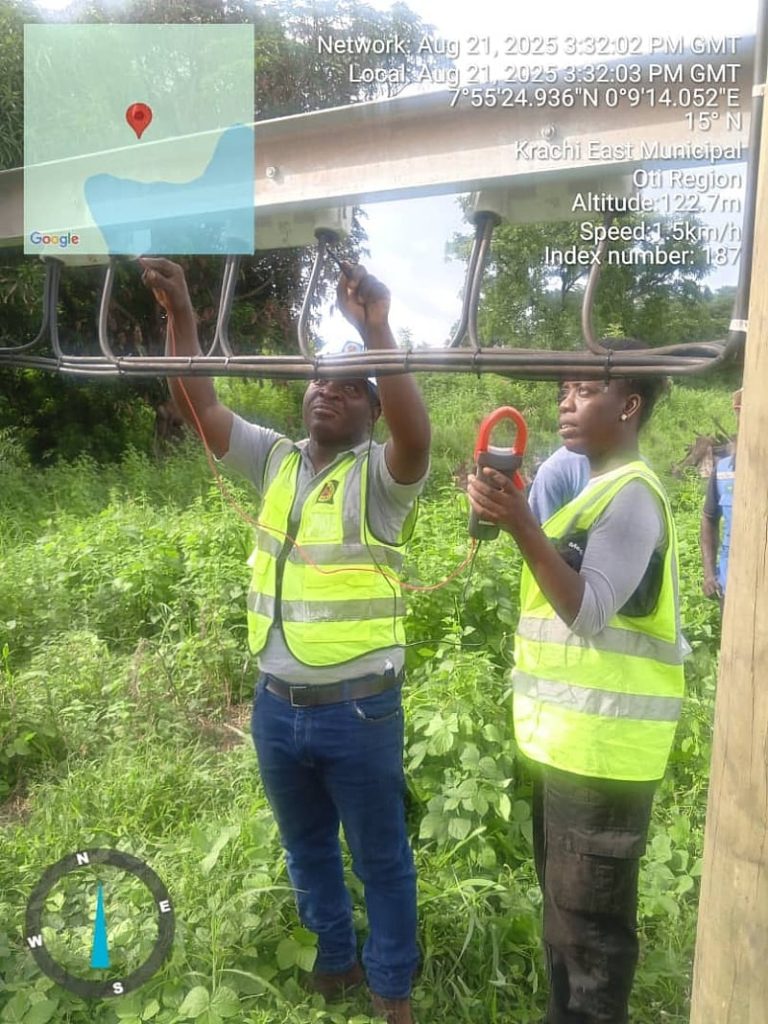The Electricity Company of Ghana (ECG) has significantly bolstered electricity access in the Dambai District of the Volta Region, commissioning 21 distribution transformers to power 24 previously unelectrified communities. This GH¢6 million project, executed under the government’s Self-Help Electrification Project (SHEP), underscores ECG’s dedication to extending reliable and safe electricity to underserved rural populations. The newly installed transformers, comprising a mix of 16 units ranging from 50kVA to 200kVA and an additional five 200kVA units, all operating at 33kV, will illuminate communities such as Adorkope Odumase, Kotokugye, Pumpi, Abongo, Olugu, Adinakope, Abongo Akura, Abada, Aglakope, Kpogede, Napoa, Asubin, Nanso Alavanyo, Sokukope, Kpevekope, Akokrowa, Betinase, Alarmblow, Nanso, and Tamanja, among others. This initiative marks a crucial step in bridging the electricity gap in rural Ghana and promises to catalyze socio-economic development in the beneficiary communities.
The commissioning ceremony, attended by key ECG officials, highlighted the collaborative effort between the company and the Ministry of Energy to achieve nationwide rural electrification. Ms. Christina Jagoe-Kaleo, Volta Regional General Manager of ECG, reiterated the company’s commitment to this partnership and emphasized the transformative potential of electricity access for these communities. She encouraged residents to leverage the ECG PowerApp for convenient and secure bill payments while also cautioning them against fraudulent activities by individuals impersonating ECG officials. This advice underscores the importance of both responsible electricity consumption and vigilance against scams that could exploit the newly connected communities.
Mr. Godfred Gyansah Awuku, Regional Engineer, elaborated on the multifaceted benefits of the project, projecting that the enhanced electricity supply would not only provide lighting but also serve as a catalyst for economic growth and improved living standards. The availability of electricity is expected to facilitate the establishment of small businesses, enhance productivity in existing enterprises, and create new opportunities for income generation. This, in turn, is anticipated to contribute to an overall improvement in the quality of life and contribute to sustainable development in these previously underserved areas.
Madam Irene Mary Odame, District Manager for Dambai, provided practical guidance to the residents, emphasizing the importance of promptly reporting any electrical faults to ensure swift resolution and maintain the safety and reliability of the power supply. She urged direct engagement with ECG offices for any electricity-related concerns, fostering a collaborative approach to service delivery and problem-solving. This emphasis on direct communication aims to build trust between the community and ECG, ensuring a smooth transition and fostering responsible electricity usage.
The SHEP initiative, through which these transformers were installed, represents a significant milestone in ECG’s broader rural electrification strategy. By bringing power to these 24 communities, the project is expected to ignite a ripple effect of positive change, fostering social transformation, economic empowerment, and an overall enhancement in the quality of life for the residents. Access to electricity will empower these communities to participate more fully in the national economy, bridging the development gap between rural and urban areas.
This project vividly illustrates the transformative potential of electricity access in rural communities. Beyond simply providing light, it lays the foundation for improved healthcare, education, and communication, empowering individuals and communities to reach their full potential. The ongoing partnership between ECG and the Ministry of Energy, coupled with initiatives like SHEP, demonstrates a commitment to equitable development and promises a brighter future for rural Ghana. The success of this project in Dambai District serves as a model for future rural electrification efforts and highlights the significant impact that access to reliable electricity can have on improving lives and stimulating sustainable development.


